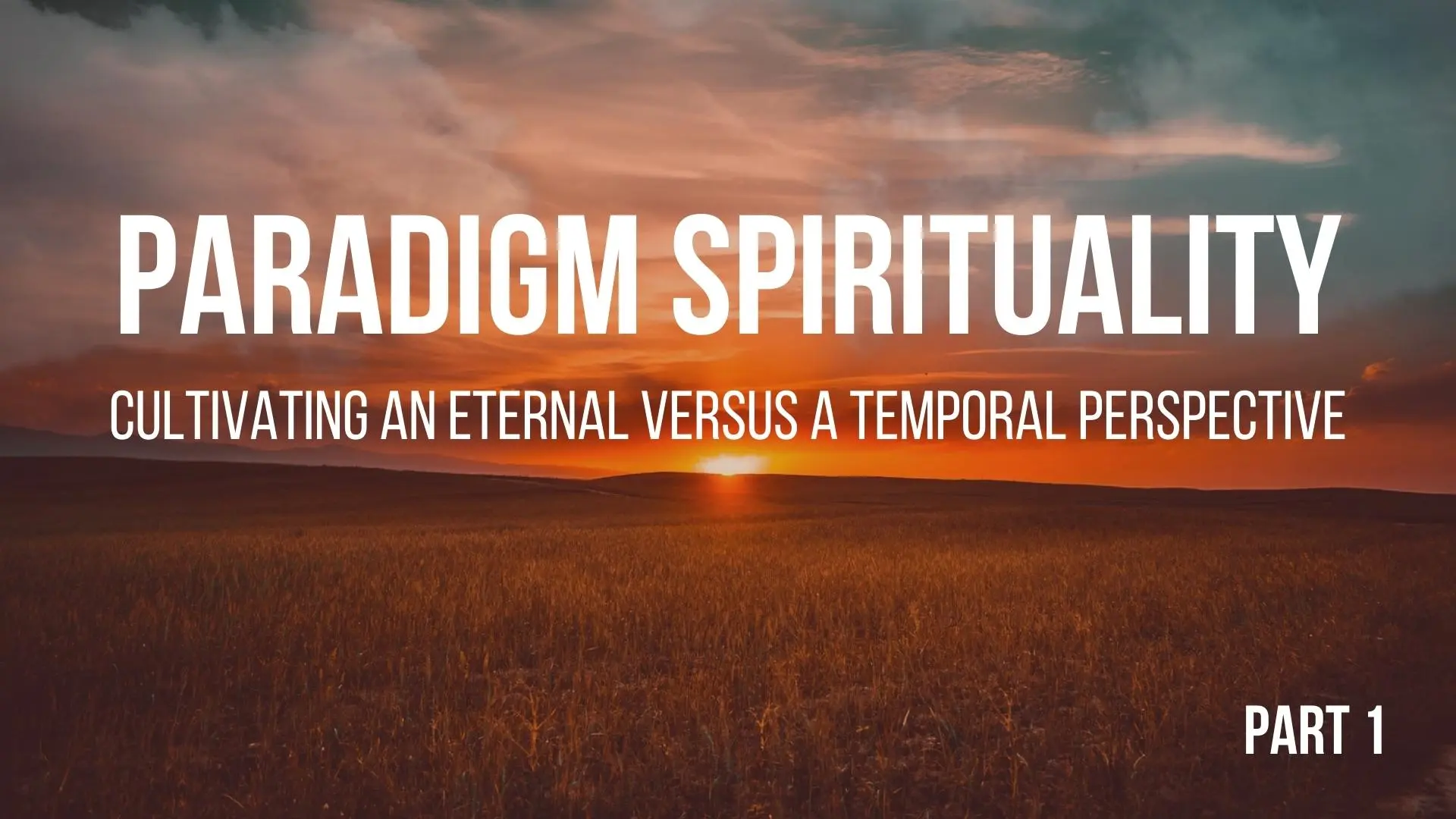Where do we find our hope? Where do we invest our time? Is it in the world of things that fade away, the things prone to corruption and decay? Or is it in the eternal things that will never perish?
Too often we treat the temporal as eternal, as if those things will last forever. James tells us, “You do not know what your life will be like tomorrow. You are just a vapor that appears for a little while and then vanishes away” (James 4:14). Our lives are like a mist, a blip on the screen of life. This may sound pessimistic, but a realistic perspective is necessary if we are to use the time we have for the things that matter.
Changing Paradigms
Even as Christians it is difficult to operate according to an eternal paradigm.
Paradigms are “[ways] of seeing based on implicit or explicit rules that shape one’s perspective.”
Take astronomy, for example. Before the Copernican revolution, the accepted model for the universe was geocentrism, the view that the universe was centered around Earth. The Copernican revolution introduced the new paradigm of heliocentrism. This new way of seeing understood that the sun is the center of the solar system, which is itself part of a much larger cosmic system.
Becoming a Christian introduces a similar type of paradigm shift. Before coming to Christ, we were dead in our sins, but now we are alive in Christ and “seated in the heavenly places” (Colossians 2:13; Ephesians 2:1–6). Before, we were enemies of God, but now we are destined for adoption as sons and daughters of God (Romans 5:10; Ephesians 1:5). We have a new destiny, and with it, a new way of seeing the world around us.
A Biblical Paradigm
A facet of living wisely is to treat things according to their true value. As believers, we can understand the true value of things because we know the ultimate Source of value. No longer should we treat the things that are passing away as if they will last forever, nor should we treat the things that will last forever as if they can be postponed. God has given us an other-centered purpose, with the final result being an unbounded relational life with Him and with those who have trusted in His provision.
A paradigm that understands life through the lens of eternity sees people as being of immeasurable worth. As C.S. Lewis put it, “ There are no ordinary people. You’ve never met a mere mortal.” People, God’s image-bearers, will live forever. The only question is whether they will be with their Creator or eternally separated from Him. So if part of living wisely according to an eternal paradigm is to treat things according to their true value, then we must not be overly concerned with the things that are passing away. Instead, we must strive for those things that last forever, and people are chief among them. Let us press on in love and service for people in order to win as many as possible to the cause of Christ, trusting in His good provision all along the way.
This study is based on “Facet 2: Paradigm Spirituality” in Ken Boa’s Conformed to His Image: Biblical, Practical Approaches to Spiritual Formation, rev. ed.



